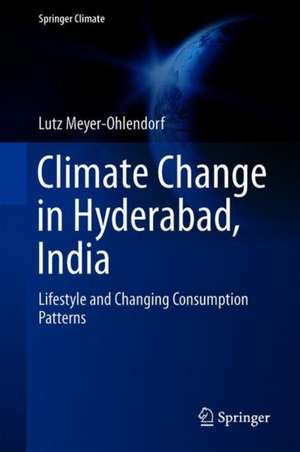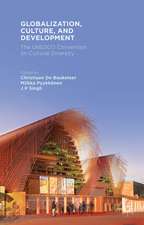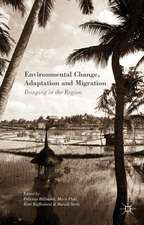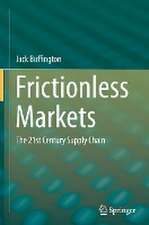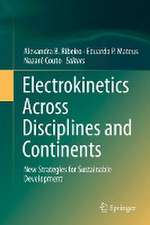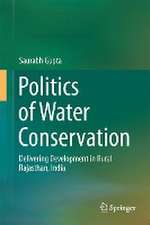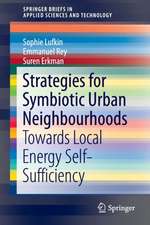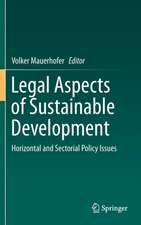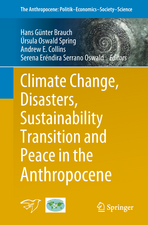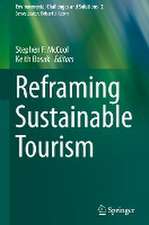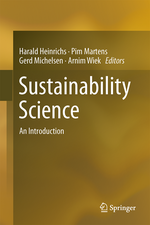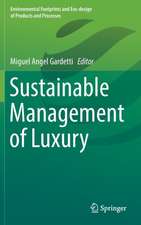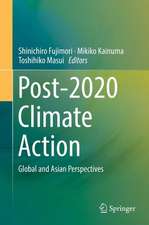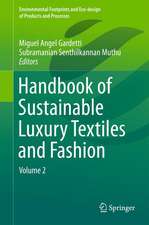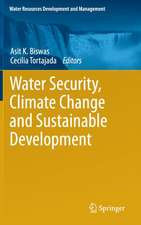Drivers of Climate Change in Urban India: Social Values, Lifestyles, and Consumer Dynamics in an Emerging Megacity: Springer Climate
Autor Lutz Meyer-Ohlendorfen Limba Engleză Hardback – dec 2018
Din seria Springer Climate
- 18%
 Preț: 1014.45 lei
Preț: 1014.45 lei - 15%
 Preț: 644.95 lei
Preț: 644.95 lei - 20%
 Preț: 753.10 lei
Preț: 753.10 lei - 18%
 Preț: 730.79 lei
Preț: 730.79 lei - 20%
 Preț: 505.38 lei
Preț: 505.38 lei - 17%
 Preț: 362.53 lei
Preț: 362.53 lei - 18%
 Preț: 910.26 lei
Preț: 910.26 lei - 18%
 Preț: 1009.70 lei
Preț: 1009.70 lei - 18%
 Preț: 781.94 lei
Preț: 781.94 lei - 18%
 Preț: 1128.57 lei
Preț: 1128.57 lei - 18%
 Preț: 960.13 lei
Preț: 960.13 lei - 20%
 Preț: 513.20 lei
Preț: 513.20 lei - 18%
 Preț: 894.79 lei
Preț: 894.79 lei - 15%
 Preț: 596.87 lei
Preț: 596.87 lei - 15%
 Preț: 645.28 lei
Preț: 645.28 lei - 18%
 Preț: 893.84 lei
Preț: 893.84 lei - 18%
 Preț: 1113.39 lei
Preț: 1113.39 lei -
 Preț: 352.80 lei
Preț: 352.80 lei - 15%
 Preț: 638.76 lei
Preț: 638.76 lei - 18%
 Preț: 1001.19 lei
Preț: 1001.19 lei - 15%
 Preț: 639.90 lei
Preț: 639.90 lei - 18%
 Preț: 953.52 lei
Preț: 953.52 lei - 15%
 Preț: 642.18 lei
Preț: 642.18 lei - 15%
 Preț: 643.34 lei
Preț: 643.34 lei - 15%
 Preț: 656.25 lei
Preț: 656.25 lei -
 Preț: 416.16 lei
Preț: 416.16 lei - 15%
 Preț: 644.95 lei
Preț: 644.95 lei - 15%
 Preț: 690.11 lei
Preț: 690.11 lei - 15%
 Preț: 465.15 lei
Preț: 465.15 lei -
 Preț: 357.43 lei
Preț: 357.43 lei - 18%
 Preț: 1121.13 lei
Preț: 1121.13 lei - 18%
 Preț: 1114.34 lei
Preț: 1114.34 lei - 15%
 Preț: 696.82 lei
Preț: 696.82 lei - 18%
 Preț: 958.38 lei
Preț: 958.38 lei - 15%
 Preț: 697.15 lei
Preț: 697.15 lei
Preț: 646.62 lei
Preț vechi: 760.73 lei
-15% Nou
Puncte Express: 970
Preț estimativ în valută:
123.73€ • 129.51$ • 102.98£
123.73€ • 129.51$ • 102.98£
Carte disponibilă
Livrare economică 10-24 martie
Preluare comenzi: 021 569.72.76
Specificații
ISBN-13: 9783319966694
ISBN-10: 3319966693
Pagini: 265
Ilustrații: XX, 271 p. 44 illus., 31 illus. in color.
Dimensiuni: 155 x 235 x 16 mm
Greutate: 0.59 kg
Ediția:1st ed. 2019
Editura: Springer International Publishing
Colecția Springer
Seria Springer Climate
Locul publicării:Cham, Switzerland
ISBN-10: 3319966693
Pagini: 265
Ilustrații: XX, 271 p. 44 illus., 31 illus. in color.
Dimensiuni: 155 x 235 x 16 mm
Greutate: 0.59 kg
Ediția:1st ed. 2019
Editura: Springer International Publishing
Colecția Springer
Seria Springer Climate
Locul publicării:Cham, Switzerland
Cuprins
Chapter1. Introduction: Climate change and lifestyle – the relevance of new concepts for socialecological research.- Chapter2. Approaches of measuring human impacts on climate change.- Chapter3. The research context: India and the megacity of Hyderabad.- Chapter4. Conceptualisation and operationalisation – A social geography of climate change: Social-cultural mentalities, lifestyle, and related GHG emission effects in Indian cities.- Chapter5. Results part I – Descriptive analysis of manifest variables and preparation of latent components for the lifestyle analysis.- Chapter6. Results part II – Income, practice, and lifestyle-oriented analysis of personal-level GHG emissions.- Chapter7. Discussion.- Chapter8. Final conclusions – Understanding inequalities in consumption-based, personal level GHG emissions.
Recenzii
“Drivers of Climate Change in Urban India appears most useful for social scientists studying climate change, or climate scientists interested in social and cultural impacts on emissions, especially those looking to apply a mixture of quantitative and qualitative research tools in specific urban settings.” (Christine Ro, E&U Enviroment & Urbanization, environmentandurbanization.org, May 06, 2019)
Notă biografică
Dr. Lutz Meyer-Ohlendorf is a social geographer at Potsdam Institute for Climate Impact Research (PIK) in Germany.
Textul de pe ultima copertă
This study transcends the homogenizing (inter-)national level of argumentation (‘rich’ versus ‘poor’ countries), and instead looks at a sub-national level in two respects: (1) geographically it focuses on the rapidly growing megacity of Hyderabad; (2) in socio-economic terms the urban population is disaggregated by taking a lifestyle typology approach. For the first time, the lifestyle concept – traditionally being used in affluent consumer societies – is applied to a dynamically transforming and socially heterogeneous urban society. Methodically, the author includes India-specific value orientations as well as social practices as markers of social structural differentiation. The study identifies differentials of lifestyle-induced GHG emissions (carbon footprints) and underlines the ambiguity of a purely income based differentiation with regard to the levels of contribution to the climate problem.
Caracteristici
Presents the first lifestyle typology in the Indian context Provides a lifestyle-specific analysis of individual level carbon footprints applied to the Global South Offers a new methodology on segmenting lifestyles based on Indian specific value orientations and social practices Comprehensively analyzes a representative survey on personal level carbon footprints in urban India
